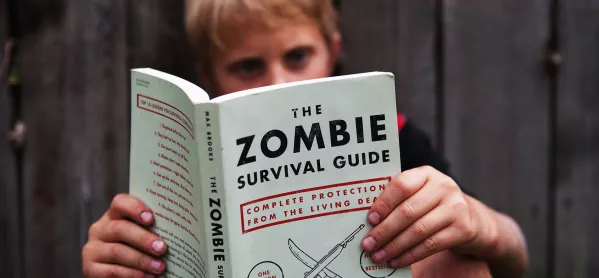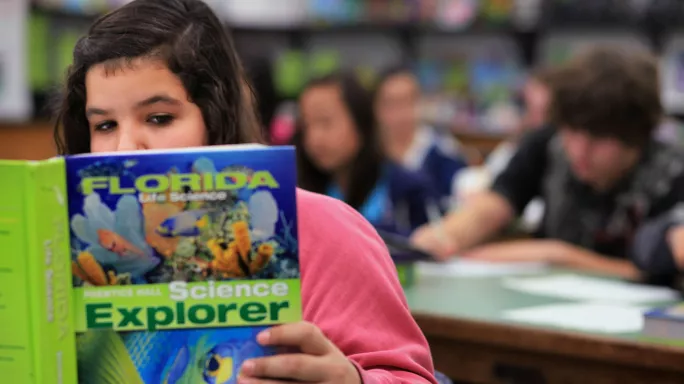We’re always encouraging students to read fiction.
We push them towards the library doors, wave the latest David Walliams bestsellers in their bemused faces and catch them in the corridor with our recommendations for the latest dystopian trilogy.
But do we ever point them in the direction of newspaper websites, travel blogs and historical reports?
Quick read: The 4 secrets of a high-quality text in primary
Quick listen: Inference: why comprehension is not just about vocabulary and knowledge
Want to know more? Reading comprehension: how to gauge pupils’ understanding
Literacy isn’t just about how often students pick up books, it’s also about the types of texts they read. And that should mean as much non-fiction as fiction.
This does present challenges, as summarised by Doug Lemov in Reading Reconsidered.
He says: “Comprehension of non-fiction demands a strong base of prior knowledge, but reading non-fiction is also one of the primary ways such a base of knowledge is built.”
This is why we must introduce non-fiction to children from an early age.
The more young people read in school, with the expert guidance of the teacher, the more opportunities they will have to build up a vast store of background knowledge to help them understand more complex texts later on.
To do this, we must give more lesson time to non-fiction.
Every teacher in every subject needs to take responsibility for this, not just the English department. Reading is universal and applicable to all disciplines, all of which come with their particular reading challenges.
Lemov recommends that to increase the absorption rate of these texts, students should be given the opportunity to read more than one text on any given topic.
So, when learning about the Battle of Waterloo in history, why not read journal entries from people who were there, or articles about the event?
And when studying Dickens in English, why not read it alongside extracts from his own Sketches by Boz or articles about the Poor Laws?
Keep it real
For non-fiction to be most beneficial for students, it should be as undiluted as possible.
Texts should retain their non-fiction features - headings and subheadings, bullet points, brackets and so on - and complex vocabulary should not be removed in favour of a simpler alternative. In fact, non-fiction is one of the best ways to expose students to complex vocabulary.
Vocabulary guru Alex Quigley suggests that teachers should “identify the words to teach explicitly and decide upon the essential etymological knowledge to share in a structured way with students”.
It is incredibly easy to access a huge variety of non-fiction texts online, from places such as JSTOR, the British Library, National Geographic, news websites and so on.
You can even share these sources with students, hopefully moving them away from the desire to click on Wikipedia when it appears at the top of their search results. For those students going into higher education, this is especially vital.
Enthusiasm
One of the greatest benefits of embedding non-fiction into lessons is the increase in enthusiasm.
Non-fiction can tap into students’ interests in a way that fiction often can’t; it provides opportunities to satisfy their curiosities and to explore new horizons.
Teachers of all subjects have the power and responsibility to demonstrate to students just how intriguing and electrifying the world around them really is, making them more aware of the wonders of civilisation, the phenomena of nature and the issues that affect both.
Laura Tsabet is lead practitioner of teaching and learning at a school in Bournemouth





